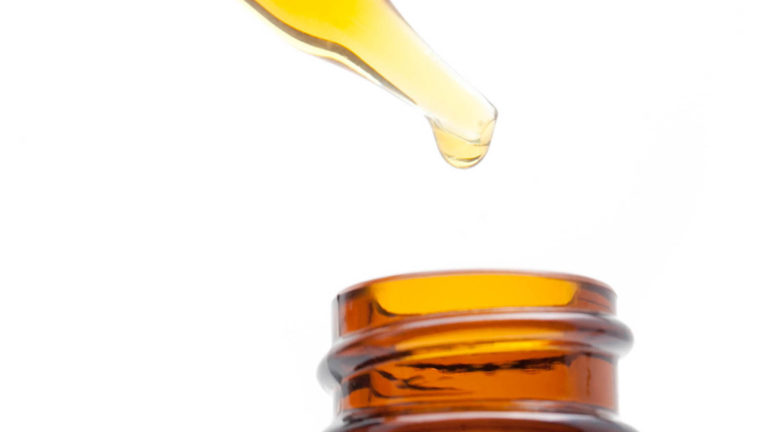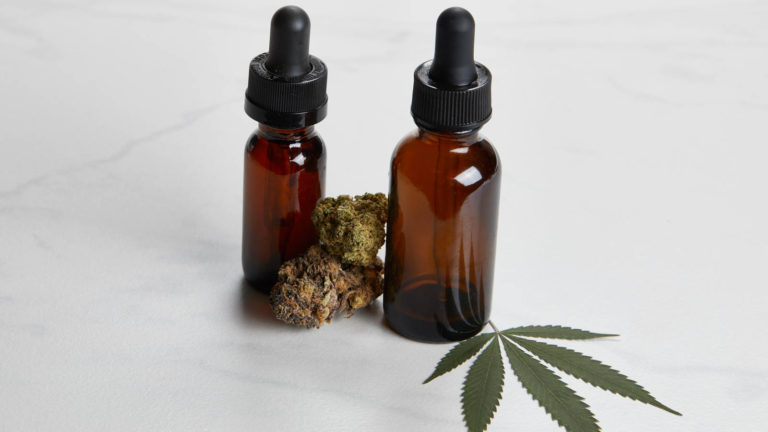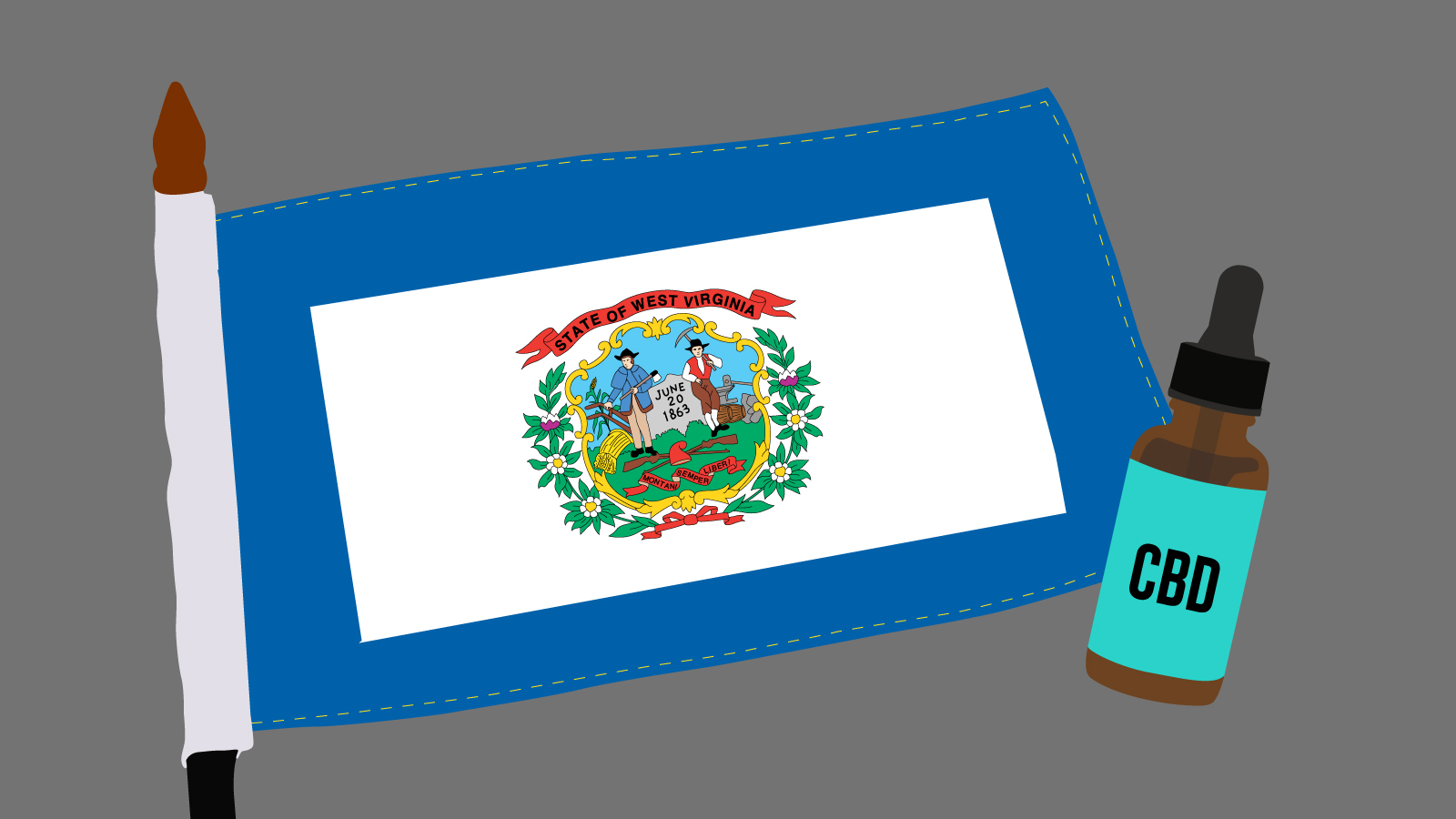CBD sourced from hemp is legal in West Virginia. Hemp was initially legalized in 2002 with the passage of Senate Bill 447 and defined hemp as cannabis with no more than 1% THC. The state passed the West Virginia Industrial Hemp Development Act in 2018, with the state updating its hemp licensing program in 2019. CBD sourced from cannabis is also legal for patients with qualifying medical conditions, following the West Virginia Medical Cannabis Act which was signed into law on April 19, 2017.
West Virginia has developed licensing procedures for hemp growers, processors, and sellers. CBD products derived from hemp can be found in retail shops and can be purchased without a license. CBD products derived from cannabis can only be purchased from licensed dispensaries by patients with written medical certification.
What is CBD?
CBD stands for cannabidiol. It is a non-intoxicating cannabinoid found in cannabis. Cannabidiol is the second-most abundant cannabinoid in the plant after tetrahydrocannabinol (THC). It has many potential therapeutic benefits, including anti-inflammatory, analgesic, anti-anxiety, and seizure-suppressant properties. CBD can be sourced from both marijuana and hemp plants.
Combine THC and CBD to fully employ the entourage effect.
 Photo by: Gina Coleman/Weedmaps
Photo by: Gina Coleman/WeedmapsImage lightbox

Why is CBD sometimes illegal?
All types of cannabis, including hemp strains that don't produce enough THC to cause intoxication, were considered illegal under the Federal Controlled Substances Act of 1970. The law categorized all cannabis as Schedule I, which defined the plant as a highly addictive substance with a high potential for abuse and no accepted medical use.
The Hemp Farming Act of 2018 re-classified hemp as an agricultural commodity, and made its cultivation federally legal. Further, the act removed some forms of cannabis from Schedule I status by creating a legal distinction between hemp and marijuana. Hemp is cannabis with less than .3% THC, and marijuana refers to cannabis with more than .3% THC. This distinction in federal law effectively legalized CBD that is derived from cannabis with less than .3% THC, as long as it's been cultivated according to federal and state regulations.
The 2018 Hemp Farm Bill legislation does not mean that CBD derived from hemp is universally legal throughout the United States. According to the Farm Bill, the Food and Drug Administration (FDA) has the power to regulate CBD product labeling, including therapeutic claims and the use of CBD as a food additive. The FDA has already maintained that even hemp-derived CBD may not legally be added to food and beverages, or marketed as a dietary supplement.Although the organization has begun to re-evaluate some of these stances on legal CBD products, the FDA has not revised its regulations. The agency also has been strict in its stance against any labeling that could be perceived as a medical claim about CBD.
In addition to federal regulation of CBD, the Farm Bill also gave states the option to regulate and prohibit the cultivation and commerce of CBD. States may also regulate CBD in food, beverages, dietary supplements, and cosmetic products independently, even before the FDA finalizes its policies. West Virginia is one such state, permitting the sale of CBD in foods, personal care items, and cosmetics.
West Virginia CBD laws
In 2018, the West Virginia Legislature legalized the cultivation of hemp for industrial purposes with the West Virginia Industrial Hemp Development Act. After the 2018 U.S. Farm Bill was passed into law, West Virginia updated its legislature surrounding the cultivation, processing, and sale of hemp-derived products, such as CBD. House Bill 2694 was passed in April 2019 to clarify rules on hemp licensing requirements, and the handling and transportation of industrial hemp.
The bill clearly states that:
- Hemp with no more than .3% THC is an agricultural commodity.
- No license is required to possess, handle, transport, or sell hemp-derived cannabinoids such as CBD.
- CBD derived from hemp is not a controlled substance or adulterant.
- Products containing CBD that are intended for consumption are to be considered foods, not controlled substances.
Unlike some states, West Virginia allows hemp and CBD products from out-of-state to be sold, on the provision that the hemp has been produced in a manner consistent with state laws.
 Photo by: Gina Coleman/Weedmaps
Photo by: Gina Coleman/WeedmapsImage lightbox

Following Senate Bill 386, which passed in April of 2017, CBD products sourced from cannabis became available by prescription to those with qualifying medical conditions with a physician's recommendation.
Licensing requirements for CBD
Licensing guidelines for CBD can be found in House Bill 2694. Hemp growers and processors must apply to the agricultural commissioner for a license on a form provided by the commissioner. Licenses that are granted are valid until December 31 of the year in which they are approved. Those who apply for a license are subject to federal and state background checks.
Once a license has been granted, licensees must provide documentation that the seeds planted contain no more than .3% THC. They must also provide the geographical coordinates of the land where they will be growing industrial hemp.
Those who cultivate hemp with more than .3% THC, or violate other provisions of the law three times within five years, will be banned from growing or processing hemp for five years. Intentional violation of the regulations may result in the grower being turned over to local law enforcement.
West Virginia CBD possession limits
There are no possession limits for CBD derived from industrial hemp at this time.
 Photo by: Gina Coleman/Weedmaps
Photo by: Gina Coleman/WeedmapsImage lightbox

There are possession limits for CBD derived from marijuana. Approved patients are permitted to possess a thirty-day supply of cannabis-infused products, such as CBD in the form of tinctures, oils, pills, topicals, forms of vaporization and nebulization, excluding dry leaf plant.
For those not enrolled in the medical cannabis program, possession of any quantity of CBD products derived from cannabis is treated as a misdemeanor and may result in a prison sentence of a minimum of 90 days, up to 6 months. They will also result in a maximum fine of $1000.
Where to buy CBD in West Virginia
West Virginia has several CBD-specific storefronts where hemp-derived CBD can be purchased. Local pharmacies, grocers, and health food stores may also sell CBD products. More locations will likely carry CBD products as hemp production in the state ramps up.
CBD derived from marijuana is only available from a licensed dispensary.
Shopping online for CBD represents another option for purchase. Consumers can shop from a wide variety of online outlets for CBD products, read consumer reviews, and ship purchases to their homes. Online shopping also offers the ability to gather detailed information about each product, compare different products and product types, and compare products to find the best price. CBD brands often also have their own ecommerce shop, allowing you to purchase your desired CBD products straight from the source. Find out more about where to purchase CBD on Weedmaps.
How to read CBD labels and packaging
The 2018 Farm Bill shifted the oversight of hemp and hemp-derived products from the U.S. Department of Justice (DOJ) to the U.S. Food and Drug Administration (FDA). The FDA currently does not presently allow CBD-infused food, drinks, or dietary supplements to be sold, and hasn't yet provided regulations for hemp-derived CBD products.
Still, the agency warns that regulations in flux still require companies to make legitimate claims on their labels. Buyers should nonetheless approach CBD products with caution. Most reputable CBD producers typically include the following information on their CBD product labels:
- Amount of active CBD per serving.
- Supplement Fact panel, including other ingredients.
- Net weight.
- Manufacturer or distributor name.
- Suggested use.
- Full-spectrum, broad-spectrum, or isolate.
- Batch or date code.
One of the most important things to pay attention to is whether a CBD product is full-spectrum, broad-spectrum, or isolate.
Full-spectrum means that the CBD has been extracted from a hemp plant along with all other cannabinoids and terpenes, including whatever trace amounts of THC the plant may have produced. Consuming full-spectrum CBD may yield better results thanks to the entourage effect, a phenomenon in which the mixture of cannabinoids and terpenes work together to produce a more pleasant experience.
Broad-spectrum means that the product contains CBD and terpenes, but has undergone additional processes to strip out any THC.
Finally, isolate is a product that has gone through more intensive processing to remove all compounds except for CBD. Consuming isolate may produce different effects than full-spectrum or broad-spectrum CBD, as these products do not produce the entourage effect.

